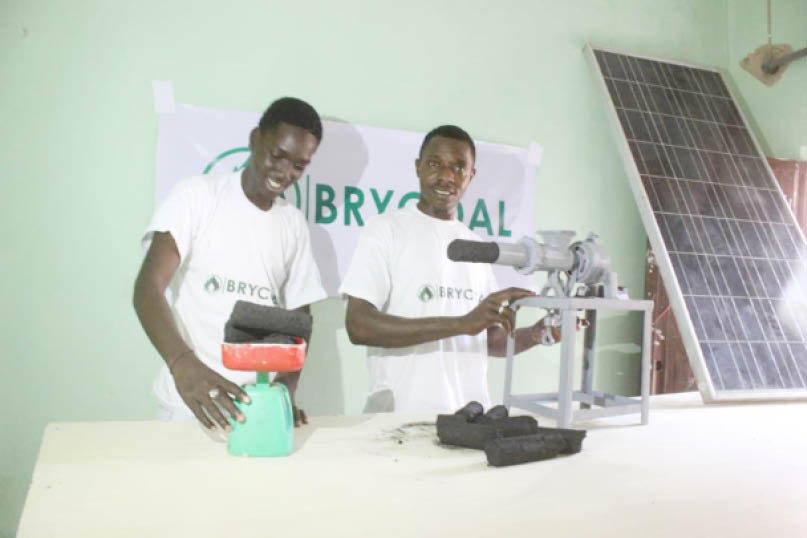BUK students produce charcoal briquettes, make $1m Hult Prize shortlist
A team of three undergraduate students of Bayero University, Kano (BUK) has made it onto the 40 teams shortlisted for the $1 million Hult Prize, the world’s largest student competition. The competition is about creating market ready solutions to the pressing needs of humanity, while maintaining balance between profit and social impact. Its goals are […]

The team produces charcoal briquettes
A team of three undergraduate students of Bayero University, Kano (BUK) has made it onto the 40 teams shortlisted for the $1 million Hult Prize, the world’s largest student competition.
The competition is about creating market ready solutions to the pressing needs of humanity, while maintaining balance between profit and social impact. Its goals are in line with the Sustainable Development Goals (SDGs) of the United Nations.
The students, Ubaidurrahman Sulaiman, Mustapha Sani Abdullahi and Abdulhafeez Adebayo, have won the contest at the campus level with their innovation and then at the regional level in Abuja
The team would be competing at the global stage in the UK alongside 39 teams comprising of hundreds of students from many world class universities around the world.
The team invented a solar-powered device that allows for crop waste to be utilized for job creation in rural communities, through the production of charcoal briquettes.
They are presently running the pilot project in Kura Local Government Area of Kano State where they recycle the enormous crop waste from the massive agriculture in the area and then produce charcoal from it.
Speaking with our correspondent in Jos, the team’s captain, Sulaiman, said their innovation has the potential of creating about 10,000 jobs in the country in five years.
He said the team, named Brycoal Nigeria, is utilizing crop waste to produce charcoal briquettes for cooking and household use to improve livelihood.
“Nigeria is plagued with poor waste management systems. That is what drew our attention to our project. With the increase in tree-felling/deforestation in the country for charcoal purposes, we used our background in engineering to find the solution to the problem by using crop waste to produce charcoal.
“Sugarcane waste pollution, for instance is a problem many Nigerians know too well. But we have successfully closed three sugarcane waste dumpsites in Kano by processing the waste and converting it into charcoal briquettes. The charcoal briquettes we produce are exactly what this country needs.
“Our product would tremendously decrease the dependency on wood charcoal. Our product also last longer than firewood and wood charcoal and it is also healthier to use because of its smokeless property,” the team captain said.
He however said the team is facing funding problem which led to the UK visa processing challenges it had.
Sulaiman said the team single-handedly funded the project and called on Nigerians to patronize their charcoal briquettes to enable them raise funds not only to improve on the project but to also facilitate their participation in the UK contest in September.
It would be recalled that a team of Nigerian students, ImpactRays, made it to the final six-team shortlist last year, making it the only African team to achieve the feat.
